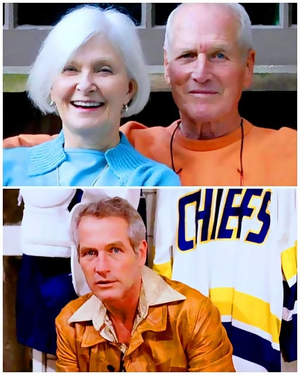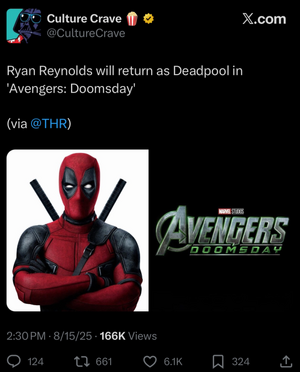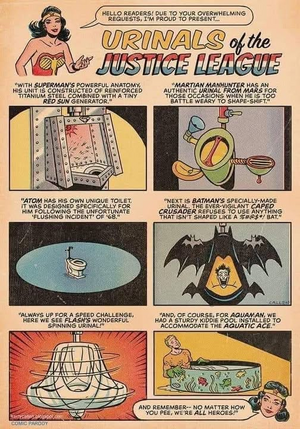


When asked late in his career which role brought him the most joy, Paul Newman didn’t name “The Hustler,” “Cool Hand Luke,” or even his Oscar-winning turn in “The Color of Money.” He grinned and said, “Reggie Dunlop. That guy made me laugh harder than anyone ever has.” For an actor known for portraying brooding rebels and morally torn loners, this confession came as a surprise to many. But to Newman, Reggie was a side of himself the world seldom saw.
Released in 1977, “Slap Shot” was a crude, chaotic, and wildly unfiltered sports comedy about a failing minor league hockey team. Newman played Reggie Dunlop, the aging player-coach who, in an act of desperation, leans into violence and spectacle to revive his team’s popularity. The role was loud, profane, and deliberately outrageous. For Newman, it was a total shift from the restrained elegance of “Hud” or the smoldering tension of “The Verdict.”
He later shared that the filming process was one of the most liberating experiences of his life. “There’s a part of me that will always be Reggie,” he told an interviewer in the early 2000s. “I liked that guy. He didn’t care what anyone thought.” The comment revealed a layer of the actor long hidden behind blue eyes and gravitas. Reggie Dunlop didn’t fit the mold of the classic Newman character. And that is exactly why he loved playing him.
“Slap Shot” was raw, its humor vulgar, its characters absurd. But for Newman, it was an environment that invited play. The cast, largely made up of real hockey players and comedic actors, brought a spontaneous, on-the-fly energy that allowed Newman to improvise, curse, shout, and act with a freedom rarely seen in his more dramatic work. He wasn’t confined to emotional subtlety or tightly choreographed performances. Reggie gave him room to be messy and he relished it.
During shooting, Newman spent time in freezing arenas with the Hanson Brothers, a trio of characters known for their wild antics and thick glasses. Their unpredictable behavior and complete lack of polish cracked him up regularly on set. Co-stars recalled how Newman often broke character, unable to keep a straight face during their scenes. “He was like a teenager with them,” recalled Michael Ontkean, who played Ned Braden. “You could see him light up around that madness.”
For hockey fans, Reggie Dunlop became iconic. The movie’s popularity grew steadily over the years, evolving into a cult classic. What began as a lowbrow sports comedy became a beloved staple of locker rooms and sports bars, especially in Canada and the northeastern United States. Newman’s performance stood out not because it was his most polished, but because it was the most fun. For an actor who spent much of his career perfecting cool detachment, Reggie’s emotional chaos was a breath of fresh air.
Newman admitted he was nervous when the movie first came out. The script, written by Nancy Dowd, was unfiltered and loaded with profanity. He wondered how fans might react to him embracing such a different tone. But over time, he realized how freeing it had been. “It was the only film I did where I never felt like I had to act,” he once said. “Reggie just lived in me somewhere, waiting for his shot.”
Years later, when his name was mentioned in connection with gravitas-heavy roles, Newman would often pivot and bring up “Slap Shot.” He never let it fade into the background of his career. It wasn’t the role that earned him the most awards, but it was the one that made him feel the most human.
Reggie Dunlop let Paul Newman drop the mask, and in doing so, he gave audiences a glimpse of the man who loved mischief as much as meaning.
Released in 1977, “Slap Shot” was a crude, chaotic, and wildly unfiltered sports comedy about a failing minor league hockey team. Newman played Reggie Dunlop, the aging player-coach who, in an act of desperation, leans into violence and spectacle to revive his team’s popularity. The role was loud, profane, and deliberately outrageous. For Newman, it was a total shift from the restrained elegance of “Hud” or the smoldering tension of “The Verdict.”
He later shared that the filming process was one of the most liberating experiences of his life. “There’s a part of me that will always be Reggie,” he told an interviewer in the early 2000s. “I liked that guy. He didn’t care what anyone thought.” The comment revealed a layer of the actor long hidden behind blue eyes and gravitas. Reggie Dunlop didn’t fit the mold of the classic Newman character. And that is exactly why he loved playing him.
“Slap Shot” was raw, its humor vulgar, its characters absurd. But for Newman, it was an environment that invited play. The cast, largely made up of real hockey players and comedic actors, brought a spontaneous, on-the-fly energy that allowed Newman to improvise, curse, shout, and act with a freedom rarely seen in his more dramatic work. He wasn’t confined to emotional subtlety or tightly choreographed performances. Reggie gave him room to be messy and he relished it.
During shooting, Newman spent time in freezing arenas with the Hanson Brothers, a trio of characters known for their wild antics and thick glasses. Their unpredictable behavior and complete lack of polish cracked him up regularly on set. Co-stars recalled how Newman often broke character, unable to keep a straight face during their scenes. “He was like a teenager with them,” recalled Michael Ontkean, who played Ned Braden. “You could see him light up around that madness.”
For hockey fans, Reggie Dunlop became iconic. The movie’s popularity grew steadily over the years, evolving into a cult classic. What began as a lowbrow sports comedy became a beloved staple of locker rooms and sports bars, especially in Canada and the northeastern United States. Newman’s performance stood out not because it was his most polished, but because it was the most fun. For an actor who spent much of his career perfecting cool detachment, Reggie’s emotional chaos was a breath of fresh air.
Newman admitted he was nervous when the movie first came out. The script, written by Nancy Dowd, was unfiltered and loaded with profanity. He wondered how fans might react to him embracing such a different tone. But over time, he realized how freeing it had been. “It was the only film I did where I never felt like I had to act,” he once said. “Reggie just lived in me somewhere, waiting for his shot.”
Years later, when his name was mentioned in connection with gravitas-heavy roles, Newman would often pivot and bring up “Slap Shot.” He never let it fade into the background of his career. It wasn’t the role that earned him the most awards, but it was the one that made him feel the most human.
Reggie Dunlop let Paul Newman drop the mask, and in doing so, he gave audiences a glimpse of the man who loved mischief as much as meaning.






